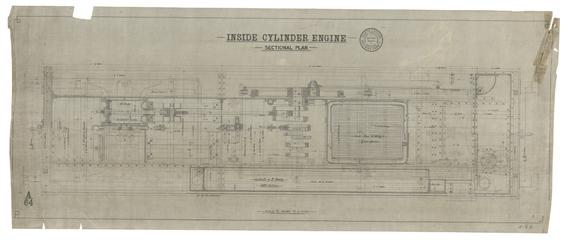
Bow Road Locomotive, Carriage and Wagon Works
The Bow Road Works were built on land belonging to George Giles in the parish of St Leonard’s Bromley. The decision to build the works was taken in 1854, a contract for construction let to Messrs Hack and Son in April and they became operational by December. By 1863 the Works were self-sufficient for most purposes. By 1902 they had expanded to cover some 31 acres, employing about 750 staff and described by Chisholm as ‘a miniature Crewe’, with erecting shop, foundry, smithy, lathe shops, and a well –equipped Stores Department. Chisholm remarked on the general cleanliness and tidiness and this is evidenced in contemporary photographs.
At that time the railway was running 118 locomotives either built or modified at the Bow Works. The majority (74) comprised a Standard Class of 4-4-0 Tank engines with outside cylinders for passenger work designed by William Adams, and 29 0-6-0T Goods engines designed by John C Park. There were two smaller classes of 4-4-0T engines, comprising 11 ‘Old’ engines with inside cylinders and 4 other similar engines to a different design. There was also a steam crane tank.
The Locomotive Superintendents in charge of the Bow Road Works were:
1854-1873 William Adams (later of the Great Eastern Railway and the London and South Western Railway)
1873-1893 John Carter Park
1893-1908 Henry J Pryce
In 1909 construction work at Bow ceased when the London and North Western Railway Co (LNWR) took over running of the North London Railway (NLR) and Henry Pryce retired. The Works reverted to repair work, with some staff moving to Crewe and Wolverton.
On 1 January 1922 the NLR was formally amalgamated with the LNWR. In 1923, as part of the grouping of the railway companies by Act of Parliament the LNWR became part of the London, Midland and Scottish Railway Co. At that time the Bow Works absorbed repair work from the nearby Plaistow Works of the former London, Tilbury and Southend Railway.
The nationalised corporation, British Railways, finally closed the Bow Road Works in December 1959 as part of a major re-organisation of facilities. By then it employed 150 men. The Works were demolished in 1966.